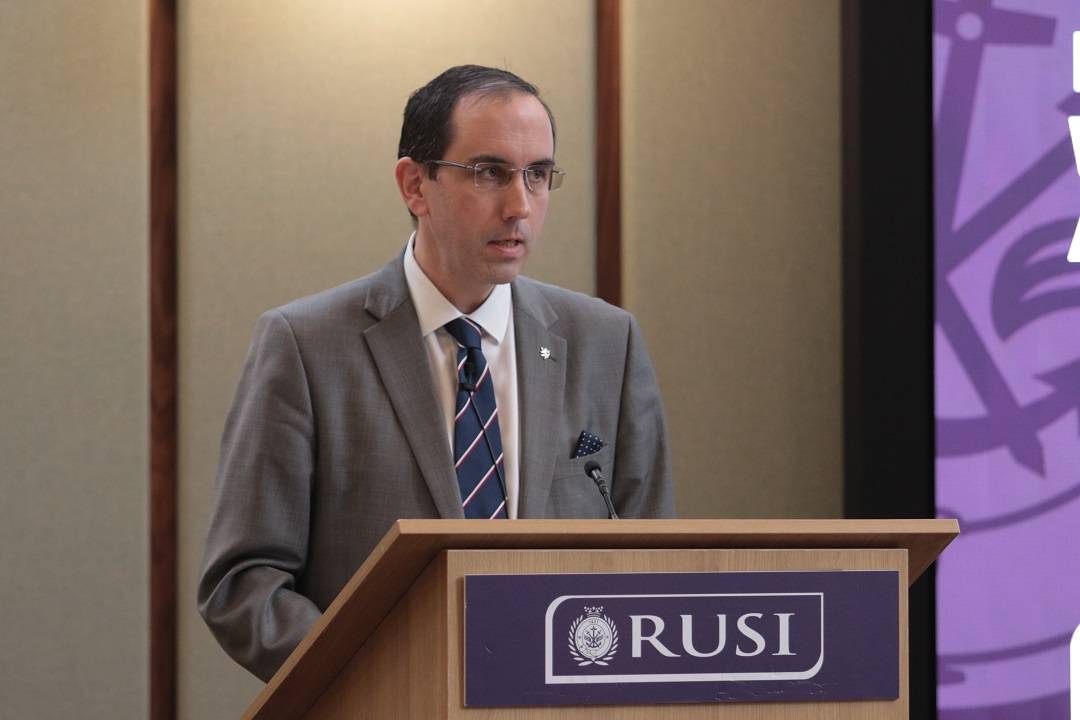Russia’s War of Aggression: Czech Deputy Foreign Minister Addresses RUSI
4 February 20252 Minute Read
On 4 February, RUSI hosted His Excellency Jan Marian, Deputy Foreign Minister of the Czech Republic, who addressed an audience of RUSI members and the press at 61 Whitehall.
The Deputy Foreign Minister reflected on the future security and stability of Central and Eastern Europe and the significant effects of the ongoing Russian war of aggression against Ukraine.
On Czechia’s foreign policy priorities, he emphasised:
- The deep anchoring of Czechia in the EU and NATO, where it is possible to create coalitions with the like-minded nations.
- The importance of good relations with neighbours.
- The need to support civil society in Central and Eastern Europe.
- The key priority of support for Ukraine.
Turning in his address to Ukraine, he made the following points:
- The need to provide more weapons and ammunition deliveries, political support, EU and NATO enlargement, and related reforms.
- That Ukraine is also fighting for our security. What would be the impact on our defence spending and migration if Russian troops were in Western Ukraine?
- The importance of learning from Ukraine - from their resilience on the battlefield and in relation to cyber defence.
- Czechia has many mutually beneficial projects in support of Ukraine, including drones, arms production and other investments.
- Czechia has been hosting up to 600,000 refugees from Ukraine, whose presence benefits the Czech economy.

On Russia, Deputy Foreign Minister Marian noted:
- Support for more sanctions against Russia and Belarus.
- Learnings from Russian behaviour in the recent years, but a falling behind in terms of response.
- Czechia’s active involvement in limiting the Russian presence in the international fora.
- The freezing of several dozen Russian state-owned properties in Czechia, except for embassy buildings. Many private properties have been frozen as well.
- The fact that Czechia does not issue visas for tourists from Russia and Belarus, encouraging allies to adopt a similar approach. Czechia continues to support activists, including the provision of visa support, through the Civil Society Programme of the Ministry of Foreign Affairs.
- Czech citizenship will be available only to those Russians who revoke their Russian citizenship.
- A reduced/ended our energy dependency on Moscow.
- Czechia’s withdrawal from post-soviet international banks and nuclear research institute.
- A need to look closely at Russian sabotage and other malign influence (particularly in relation to energy security, disinformation and the use of the orthodox church) and the Czech proposal to limit Schengen travel for Russian diplomats in the EU.
- That peace is only possible with Ukraine on her terms. Until Russian behaviour changes, there can be no peace and no ‘business as usual’ with Moscow and there is a need to be ready for years or decades of containment.
- The importance of working closely with allies, including the UK and US.
- That Moldova, which is also in a difficult situation, most not be forgotten as well as working closely with other countries interested in closer cooperation, such as Armenia.
